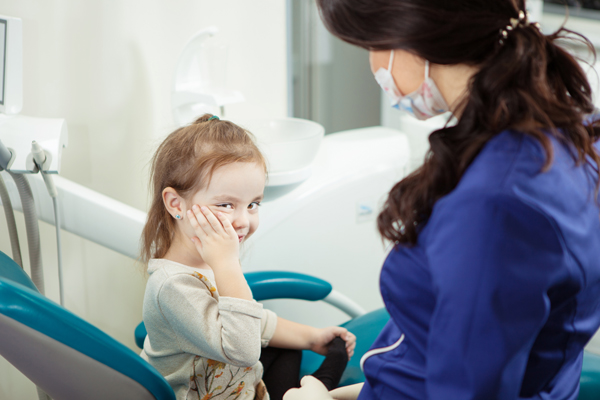Baby Root Canals: What Parents Need To Know about Saving Baby Teeth

Does your child need a baby root canal? Read on to learn more about this restoration. Pediatric dentists typically prioritize prevention, mostly to avoid procedures like a baby root canal. However, sometimes, a root canal can be suggested when a primary tooth is severely damaged. For parents, this might be surprising. Since the baby's teeth with eventually fall out, one might question the need to save them. However, these little pearly whites do serve several functions, including chewing, speaking, and allowing room for the permanent teeth to come through properly. Therefore, if it isn’t time for the tooth to fall out naturally, it might be best to try to save it with a baby root canal instead of an extraction.
An overview of baby root canals
The exterior of all teeth has an incredibly tough coating called enamel. Dentin, which is the layer under the enamel, is also hard, though it has microscopic tubes. When dentin is exposed after enamel erodes, cold and hot sensations can travel through these tubes and cause teeth to ache. The pulp is also found underneath these layers in the pulp chamber and passageways called canals. It is a living tissue with nerves and blood vessels.
When a baby root canal is recommended
Trauma such as sports injuries can infect and inflame the pulp. Bacteria and deep cavities in kids can harm the pulp too. If untreated, the infection might spread into the canals and to the tips of the roots of the teeth, causing serious pain and an abscess.
Parents will need to visit the dental office to determine whether their kid needs root canals or not. The dentist will use advanced diagnostics to see what is inside the child's teeth and how best to proceed. However, if the child is experiencing signs like a needling, throbbing pain, sensitivity to hot and cold that lasts after eating or drinking, a darkening tooth, and considerable pain when eating or exerting pressure on the teeth, then a baby root canal might be necessary.
The reason dentists perform root canals on baby teeth is to preserve the rest of the tooth system related to the main tooth and keep the gums and bones that hold it together secure. Baby root canals can keep the teeth healthy and help prevent future infections. Except in cases where the tooth will soon fall out, a root canal on a baby tooth might be an alternative rather than an extraction.
What happens during the baby root canal procedure?
Root canals have a bad reputation but pediatric dentists utilize modern methods and technology so the child will be comfortable throughout the treatment. Many patients think the experience is like getting a filling. Dental professionals also provide sedation dentistry for kids who need special attention, like nervous children or children who need extensive procedures.
The pulpotomy, or baby root canal therapy, involves numbing the gums and teeth. After that, using smaller tools, the dentist will remove the damaged pulp and nerve. They will completely clean and sterilize the area before applying medication. The last step is to seal the little hole that is left. To protect the tooth, a crown is usually recommended. The crown restores the tooth’s shape and protects it.
Final note
Pediatric dentists treat patients conservatively and work to preserve the natural structure of the tooth. If a baby root canal is the most effective option for your kid, the dental professional will explain all the options and recommend what you should do next. Book an appointment with our dental office today to get started.
Request an appointment here: https://bergencountypediatricdentistry.com or call Bergen County Pediatric Dentistry at (201) 312-6937 for an appointment in our Allendale office.
Check out what others are saying about our dental services on Yelp: Do I Need a Root Canal in Allendale, NJ.
Related Posts
When your child has a dental emergency, a visit to a pediatric dentistry office is likely necessary. Most pediatric offices are well equipped to handle serious dental injuries. In fact, taking your child to see their regular dentist can be very beneficial. Your child can feel more at ease than they would in a new…
Though rewarding, parenting is often difficult. One of the most difficult aspects of parenting that you will encounter early in your child’s life is teething. Fortunately, a pediatric dentistry professional can help you understand what to expect and, more importantly, give you advice on how to ease your child’s pain during this challenging time in…
Pediatric dental X-rays provide a detailed view of a child's teeth, gums, and jaw. These imaging tools help pediatric dentists diagnose potential oral health issues early on and ensure a child's dental development is on track. For parents, understanding pediatric dental X-rays can help them make informed decisions about their child's dental care.Pediatric dental X-rays…
Pediatric dentistry focuses on diagnosing, preventing, and treating oral health concerns in children who still have their baby teeth. This review closely examines what parents and the pediatric dentistry team can do to protect baby teeth from cavities, dental trauma, and other forms of damage.Caring for baby teeth should involve brushing and flossing regularly, limiting…
